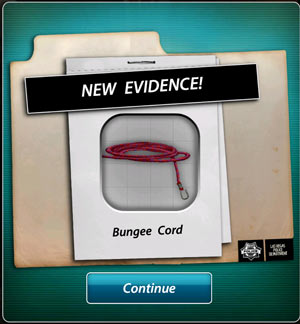

#Csi hidden crimes hack android no survey full#
I may have taken your Summer of Code a little too seriously and decided to make this quest my full time endeavour: figuring out how we can improve education through making (see ). I’ve enjoyed the wide array of experiments that have been run by your group in Toronto throughout the year, from the first Hive Popup planning sessions to the actual workshops with kids, in some of which I had the privilege of participating. As a first step, I’m working with some of these people on a simpler way to describe making + learning. We all agree that the coming year is the right time to really push the idea of making and learning globally. We already work with many people are building this agenda in their own areas: Tim O’Reilly and Dale Dougherty at Make Tom Kenyon and the people at NESTA in the UK Connie Yowell and the team at MacArthur. What we’re not doing yet is talking to each other or telling the world how huge this opportunity is.Īs I start planning for Webmaker 2013, I want to find ways to fix this: to build a bigger making and learning agenda. The thing is: it feels like many of us are already making this concerted effort. It would require a concerted effort to build products, run programs and raise public awareness in a way that gets 100s of millions of people excited about the connection between making and learning. Of course, tapping into making as a way to make substantial progress on digital literacy, digital citizenship and STEM would require more than just MakerFaires, Popcorn and social networks. My guess is that many of these people just need a little nudge to dive deeper into hacking, coding and making. Also, consider that a billion people on our planet already post or curate content online: these people may not be full fledged digital makers yet, but they clearly comfortable creating and sharing online. In the same survey, UK parents ranked coding the most important thing for their children to learn after science, english and math.
#Csi hidden crimes hack android no survey how to#
Mozilla recently asked UK young people aged 8 – 15 about coding, making games and making web pages: 67% said they wanted to know how to do these things yet only 3% said they already had these skills. These are all things that we tend to tap into more as we become citizens of the web.Īlso: appetite in making and digital creativity is growing. And, all around you: you see people helping each other, tinkering, collaborating and inventing by doing.

You turn another: you see a table full of kids and parents teaching each other to code with Scratch. You turn one direction: you see people who have taught themselves to engineer robots, rocket ships and all kinds of fantastical contraptions. If you think about a Maker Faire or a hackerspace for a moment, you can see a snapshot of this opportunity. In a world where digital things make making easier and cheaper than ever, we have the chance to move the learning ball quite far in at least three areas: digital literacy digital citizenship and STEAM. Reflecting on all this recently, I was reminded that the opportunity here is is much bigger than teaching the world the web. And, as demonstrated in NESTA’s recent report on innovation in education, you see it in discussions that link the resurgence of making, hacking and craft with new ways to teach and learn. You see it in the hands on side of the ‘learn to code’ movement. Today, you see it in action at Maker Faires and in every hackerspaces around the world. We’re not the only people who think that making and learning are deeply intertwined. But one thing has stayed constant: our core belief that making is the fastest (and funnest) way to learn things.

And our vague ideas about community building turned into a worldwide Summer Code Party. Thimble has emerged from the Xray Goggles. We’ve evolved Popcorn Maker into something lean and intuitive. We started working on Mozilla Webmaker about a year ago with this thesis: inviting people to make, tinker and share things is the best way to teach the world how the web works.


 0 kommentar(er)
0 kommentar(er)
